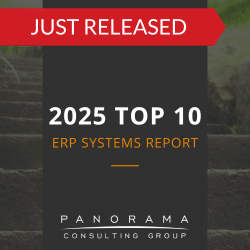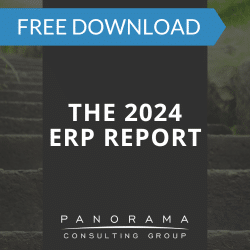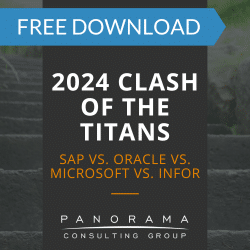A common thread among many public sector ERP failures is the presence of a flawed RFP process. The flaw is this: public sector organizations issuing RFPs tend to attract low-quality bidders, and organizations are apt to accept these bids due to the allure of lower costs.
Software vendors underbid proposals to win contracts, and they inevitably take shortcuts to stay within their tight budgets. Using boilerplate methodologies and calling them “best practices” is one way that ERP vendors manage to save the client money. While low bids are tempting to accept, there is more to be considered.
RFP Considerations
Digital transformation requires innovation. Out-of-the-box ERP systems do not foster the type of innovative thinking that leads to outstanding services for citizens. Software vendors often use implementation plans from prior engagements and modify it only slightly to fit specific requirements. This approach squeezes the organization and its processes into the vendor’s template. The vendor does not take the time to get to know your agency, understand your operational model, get to know your people and find the right fit for your processes.
When accepting a bid, organizations should also consider the caliber of the resources being offered. Many consultants lack the experience and expertise required for public sector IT projects. When releasing an RFP, organizations should ask bidders for three or more references that can attest to the bidder’s recent and relevant experience.
Preventing a Flawed RFP Process
Avoid Templates
Your RFP should cover all of your organization’s unique requirements. The government “best practices” found in RFP templates are not necessarily proven methodologies that will lead to IT success.
SAP vs. Oracle Case Study
SAP and Oracle both invest heavily in cloud technology. However, our client was skeptical about cloud scalability and unsure if the products were mature and proven.
Release Multiple RFPs
Many public sector organizations release one RFP for both selection and implementation. Although it will cost more upfront, it will ensure the selection of the right implementer.
Find a Vendor-Neutral Advisor
An independent advisor or consultant can work with vendors to negotiate the best price. Following selection, many organizations rely on a consultant’s expertise throughout implementation.
The More Detail the Better
RFPs tend to place a significant amount of power in the hands of respondents. Many public sector organizations issuing RFPs provide only a minimum amount of requirements and information. Respondents are free to offer whatever products they have that will meet this low bar.
An RFP for ERP software is not the place to be short and sweet. Before pen hits paper, your organization must make a roadmap for your ERP initiative. This roadmap will guide the research and requirements gathering necessary for drafting a comprehensive RFP for ERP procurement. Your citizens will thank you for the time you took to select technology to make their lives easier.













